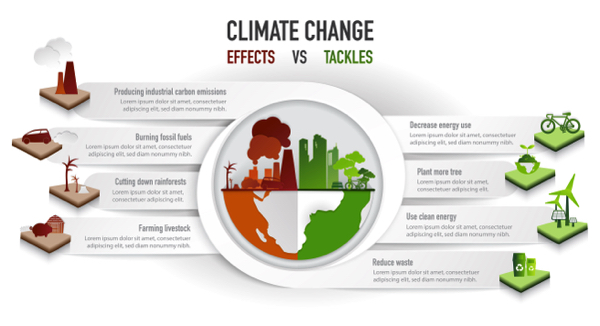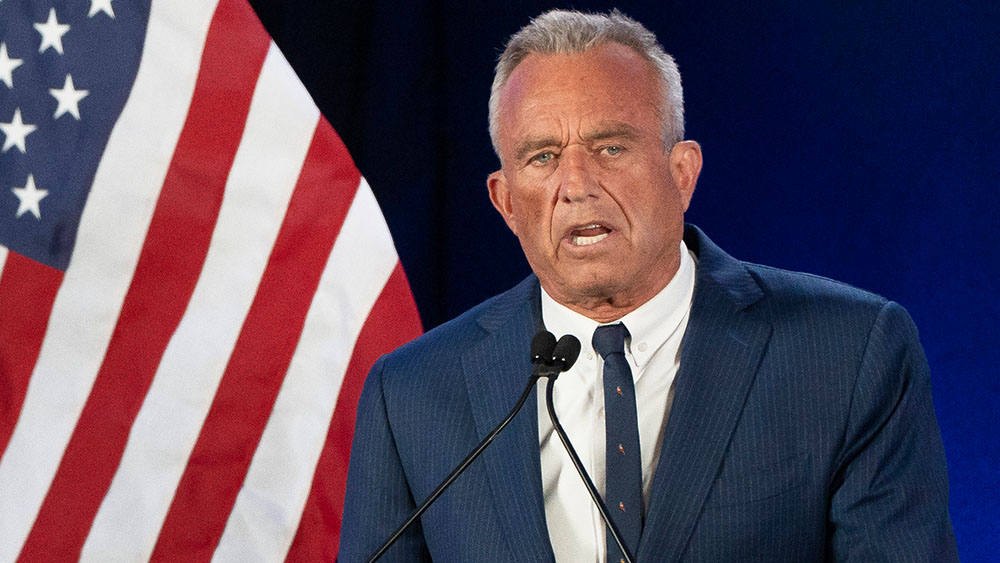BIAS in climate science: Proven conflicts of interest lead to wake-up call for transparency and rigor
02/19/2025 / By Willow Tohi

- A study by Jessica Weinkle and colleagues reveals significant conflicts of interest (COI) and a lack of transparency in climate research, particularly in studies on the relationship between climate change and hurricanes.
- The study found a strong correlation between research funded by environmental NGOs and studies that report a positive association between climate change and hurricanes, raising concerns about bias in funding.
- Not a single author out of 331 disclosed any conflicts of interest, contrasting sharply with other scientific fields where COI disclosure rates range from 17% to 33%.
- The findings suggest that climate research with undisclosed COIs is influencing public policies, including carbon taxes, legal frameworks and insurance premiums, potentially leading to flawed decision-making.
- The study calls for mandatory COI disclosures, independent audits and a centralized COI database in climate science to ensure transparency and maintain public trust.
In an era where climate science has become increasingly intertwined with policy, finance and public opinion, a new preprint study by Jessica Weinkle and colleagues is sounding the alarm on a critical issue that has long been ignored: conflicts of interest (COI) in climate research. The study, titled “Conflicts of Interest, Funding Support and Author Affiliation in Peer-Reviewed Research on the Relationship between Climate Change and Geophysical Characteristics of Hurricanes,” reveals a distressing lack of transparency and potential bias in the field. This finding is particularly troubling given the significant influence of climate research on regulatory frameworks, financial markets and insurance policies.
The study: A long-overdue investigation
Weinkle and her team analyzed 82 peer-reviewed studies published between 1994 and 2023, focusing on the relationship between climate change and hurricanes. Their objective was to determine whether author affiliations, research funding and COI disclosures were associated with study outcomes or policy recommendations. The results are alarming:
- NGO funding bias: NGO funding was a significant predictor of studies reporting a positive association between climate change and hurricanes (odds ratio = 8.72, p-value = 0.03). This suggests that studies funded by environmental NGOs are more likely to conclude that climate change influences hurricane behavior.
- Temporal bias: Studies published in 2016 or later were more likely to report a climate change-hurricane link (odds ratio = 9.19, p-value = 0.002), indicating a shift in research trends.
- Complete lack of COI disclosures: Not a single author out of 331 disclosed a conflict of interest, a stark contrast to other scientific fields where COI disclosure rates range from 17% to 33%.
These findings are particularly concerning given the absence of standard COI disclosure practices in climate science, which contrasts sharply with fields like biomedical research. For instance, in biomedical research, approximately 22.9% of articles disclose COIs, and in public health, the rate ranges from 17% to 33%.
The role of NGO funding: A clear bias
One of the most critical aspects of the study is the strong correlation between NGO funding and the likelihood of research concluding that climate change influences hurricanes. Environmental NGOs and progressive philanthropic organizations have become major players in climate policy and research funding. Unlike industry funding, which is often scrutinized for bias, NGO funding operates under an assumption of moral superiority. However, as Weinkle et al. demonstrate, this funding significantly correlates with specific research outcomes, suggesting a funding effect similar to that seen in pharmaceutical industry sponsorship in biomedical research.
In other words, just as pharmaceutical companies fund studies likely to support their drugs, climate-focused NGOs appear to fund research that supports their policy agendas. The absence of scrutiny here is a glaring double standard that undermines the integrity of climate science.
The stunning absence of COI disclosures
Perhaps the most shocking finding is the complete lack of COI disclosures among the 331 authors analyzed. This is practically unheard of in other scientific fields where COI disclosures are mandatory. Weinkle et al. found multiple instances of undeclared COIs, including:
- Patents and financial firms: Authors holding relevant patents and advising climate risk analytics and financial firms.
- Climate litigation advisors: Authors serving as advisors for climate litigation.
- Insurance industry ties: Authors affiliated with insurance industry associations.
- Advocacy collaborations: Authors collaborating with advocacy organizations to develop research for climate litigation.
These are classic COIs that should have been disclosed under any reasonable scientific ethics standard. The absence of these disclosures raises serious questions about the transparency and integrity of the research.
Policy implications: Manipulating the narrative
The study’s findings have significant policy implications. Climate research heavily influences public policy, and recommendations based on biased or financially motivated research can have immense societal costs. Policies driven by flawed or selective research include:
- Carbon taxes and energy restrictions: Based on exaggerated climate risk projections.
- Legal frameworks: Enabling lawsuits against energy companies.
- Insurance premiums: Increased based on inflated hurricane risk models.
If climate research is influenced by undisclosed COIs, as this study suggests, then many of these policies are based on potentially compromised data. The integrity of the scientific process is crucial for ensuring that public policy is based on reliable and unbiased information.
The urgent need for reform
The Weinkle study highlights an urgent need for climate science to adopt rigorous COI disclosure policies comparable to those in biomedical research. The International Committee of Medical Journal Editors (ICMJE) provides a solid template for financial and non-financial COI disclosures, which climate journals should implement immediately.
Further recommendations include:
- Mandatory COI disclosures: Climate science journals must require authors to disclose all financial and non-financial COIs, with clear definitions of what constitutes a conflict.
- Independent COI audits: An independent entity should oversee COI compliance in climate research to ensure transparency.
- Centralized COI database: Similar to the U.S. government’s Open Payments database for physicians, a centralized system should track COIs in climate science.
- Balanced funding sources: Governments and private entities should ensure diverse funding sources to prevent any single ideological influence.
If climate scientists genuinely care about maintaining public trust, they should welcome these changes.
Historical context: A lesson from the past
The issue of conflicts of interest in research is not new. In 1981, young Tennessee Representative Al Gore led a Congressional hearing into fraud cases in biomedical science. The hearing exposed a “scientific schizophrenia” where researchers testified to the problem of misconduct being limited while simultaneously admitting to more fraud than Congress knew. This led to the implementation of COI disclosure rules for those receiving grant funding from Health and Human Services in 1995, and the National Academy of Medicine’s 2009 report on conflicts of interest in medicine.
Given the historical precedent and the known impact of COIs on research outcomes, it is puzzling why climate science has not adopted similar transparency measures. The Weinkle study is a wake-up call, demonstrating that the lack of COI disclosures in climate research is not just a procedural oversight but a systemic issue that must be addressed to restore public trust.
Conclusion: Time to clean house
The Weinkle et al. study is a wake-up call for anyone who still believes climate science is an objective, bias-free discipline. The overwhelming correlation between NGO funding and climate change-hurricane research outcomes, coupled with the complete absence of COI disclosures, exposes a deeply entrenched problem. The complete lack of transparency in COI disclosures should be viewed as a scientific scandal.
If such a pattern were observed in pharmaceutical or medical research, there would be widespread public outcry and immediate reforms. Yet, in climate science, this level of opacity is tolerated—perhaps because it serves the interests of powerful political and financial actors. The question is: Will the scientific community acknowledge and correct these issues, or will it continue to operate under a veil of selective transparency?
The time has come for climate science to clean house and adopt the same rigorous standards of transparency and accountability that are the norm in other scientific fields. The integrity of climate research is too important to be compromised by undisclosed conflicts of interest.
Sources include:
Submit a correction >>
Tagged Under:
bias, climate change, climate policy, climate science, conflicts of interest, conspiracy, corruption, deception, deep state, environ, green tyranny, NGOs, research, scientific scandal, transparency, weather
This article may contain statements that reflect the opinion of the author



















